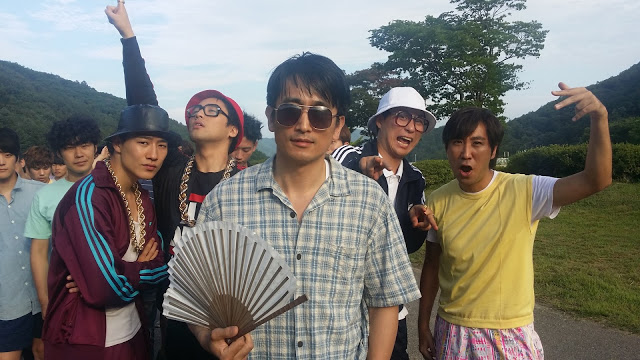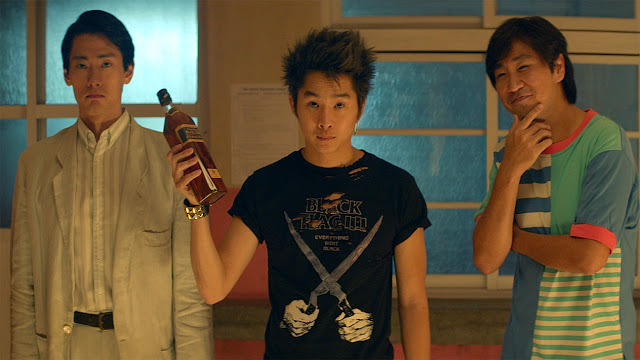A news report - which began with the announcement of my beloved National Media Museum voluntarily surrendering at least 400'000 historic photographs to a London-based institution (one without a specific remit to care for such treasures and one which had previously been caught dumping invaluable photographic archives in a skip ) - soon spiraled into a tsunami of further upsetting developments.
The former National Museum of Film, Photography and Television, we learnt, was potentially going to be re-branded with the new name of Science Museum North - an act of cultural vandalism and intellectual philistinism which highlighted the low regard the institution was held in by a board of trustees who largely considered it beneath them to visit "the regions".
On a personal note, however, the most discouraging and disheartening acquiescence of the Media Museum came with the acknowledgement that Bradford International Film Festival had officially folded after what had initially been labelled as a year's sabbatical. As a local lad, one who had the pleasure of working on the final BIFF and discovering the joys of cinema at the festival for over a decade as an attendee, this was a cruel blow.
Thankfully, however, the UK is currently in a golden period for film and festival programming - there are numerous institutions and individuals across the land who understand the cultural, educational, community and even commercial value in curating events around the moving image. Asia House are one great example of this.
This year's Asia House Film Festival, show-casing a plethora of pan-Asian delights, shines spotlights on movies, and cultures we may otherwise never discover - this is invaluable. These films, however, don't just ask us to peer outwards, but to look inwards too. Whilst the pastoral opening gala movie Stranger (Zhat) confronted us with questions on what it is to be human, to be civilised, Seoul Searching - a John Hughes-esque comedy directed by Benson Lee - ponders the very nature of identity. As with all great teen films this is a movie about belonging, about coming to understand and accept one's self, and one which is smartly told as both a knockabout comedy and as a transnational meditation.
Seoul Searching is partially based on a very true series of events. During the 1980s, the South Korean government created a summer camp programme for foreign born, ethnic Korean teenagers to return to the "motherland" in order to learn more about the nation's culture, heritage and Korean identity; perhaps they can discover a thing or two about themselves too over their stay? The initiative, we learn, was abandoned after two years due to the rowdiness and raucousness of the incoming teens.
We meet the first camp class during the course of the film - the characters includes a straight-laced Berliner, a Madonna copycat, a racist military kid, a swaggering rebel who names himself after Sid Vicious and a Mexican womaniser. As we witness the group of teens interact with each other, loosening their social shyness with the help of Korean intoxicant soju, we begin to empathise both with the government who will halt the summer camp and, crucially, with each of the adolescents who populate the narrative. They may have been born all over the globe but the camp attendees are, ultimately, united by the hopes, fears and insecurities we all have as teens - their circumstances may be specific but their concerns are universal. Who hasn't struggled to express their romantic desires coherently during our younger years? Who hasn't done something embarrassing we may come to regret?
Whilst the film may, superficially, initially appear to be not much more than an (admittedly highly enjoyable) culture-clash comedy in which decadent Westernised youths collide with their more conservative Korean seniors, Seoul Searching soon presents itself to be an incredibly smart and nuanced study of globalisation. That the film may may appear to be something of a simulacrum of American cinema (recalling fare such as Meatballs) is an intentional decision - this is a movie which highlights how ideas, culture, and even love, flow freely ignoring the constraints of nation-states' borders. As the youth learn more about their forefathers, and the Koreans who tend them begin to understand more about the wider world, the differences and similarities between the two cultures are highlighted and the two groups learn to co-exist in harmony. This is fitting for a hybrid film which appropriates American genre conventions whilst filling them with localised Korean concerns and issues - toxic masculinity, physical abuse and alcoholic dependency are recurring tropes in South Korean cinema and represented here too.
During the early 1990s, Korean auteur Im Kwon-taek made his masterpiece Seopyeonje - an atmospheric movie about a traditional folk music form known as pansori. To the surprise of many, the movie became an unexpected smash and broke all South Korean cinema records. The reason why, scholars ultimately concluded, is that people like to discover themselves on-screen - this was a hyper-local production rooted in the Korean emotion of Han and dealing very much with Korean suffering. Yet, surprisingly, Seoul Searching fulfills a similar role for audiences as Im's film but does so in a completely different formal manner - here, American pop music replaces the melancholic vocalising of pansori, and questions of the Korean identity are addressed in context to their place in a globalised world rather than in isolation.
The more one knows about Korean culture and history, the more one will understand and appreciate many of the references and occurrences within Seoul Searching - Claus the studious German-Korean, for example, draws parallels between his homeland's division with that of Korea's separation into two distinct countries. However, such knowledge is not a pre-requisite to enjoy a sweet coming-of-age feature - anybody who has ever faced the insecurity of teenage years will recognise themselves on-screen.
SEOUL SEARCHING RECEIVES ITS EUROPEAN PREMIER ON FEBRUARY 27 AT REGENT STREET CINEMA. TICKETS ARE AVAILABLE HERE .
Official Coverage Credit: ASIA HOUSE FILM FESTIVAL takes place from 22 February to 5 March at London venues - http://asiahouse.org/





No comments
Post a Comment